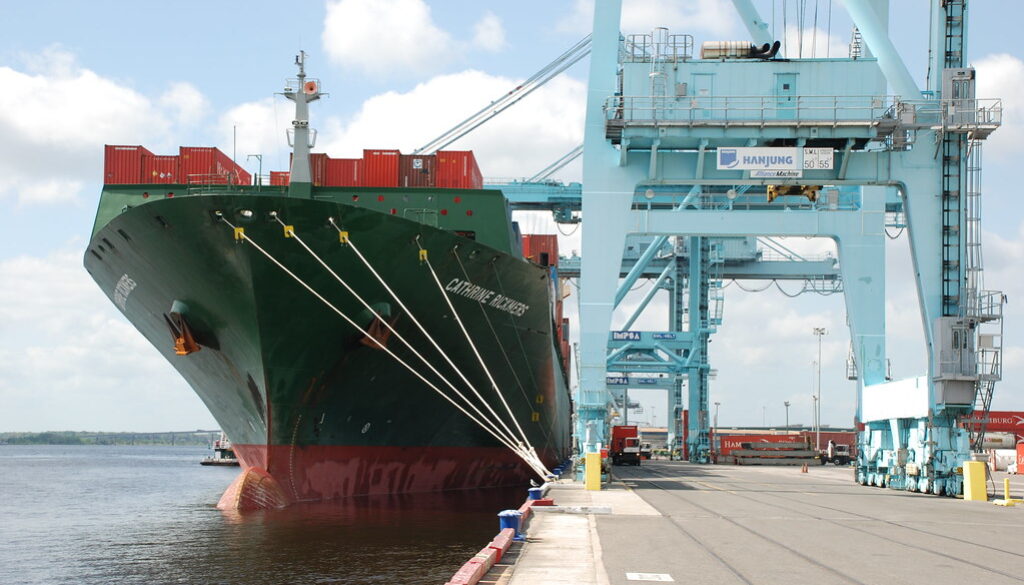The government moves to streamline and digitize procedures to facilitate trade in El Salvador
Table of Contents
Contact the Central American Group to invest in manufacturing in El Salvador.
The National Strategy 2023-2027 plans the implementation of six pillars to promote trade in El Salvador.
This month the Salvadoran government launched the National Trade Facilitation Strategy 2023-2027. In it, the country seeks to promote sustainable economics by implementing the six foundational pillars included in the measure.
The recent announcement of the plan to facilitate trade in El Salvador shows that at the end of February, it was revealed that approximately seventeen countries reduced their purchases of Salvadoran products thus far in 2023. This is according to a report on exports prepared by the Central Reserve Bank (BCR) of El Salvador. Among the top products exported by El Salvador are coffee, textiles, apparel, sugar, and electrical machinery.
Facilitating trade in El Salvador requires lower costs
The Secretary of Trade and Investments, Miguel Kattán, indicated, during the event on Monday, March 6, 2023, that efforts must be redoubled to be more agile in all operations, in addition to the fact that it is essential to lower costs while maintaining the controls that the State is obliged to.
“The institutions governing trade must work in this sense. Each one of the members of these institutions must have this vision and not seek to interfere solely. Sometimes I believe that public employees have the vision that doing the most difficult things guarantee their job, and that’s the mindset they have to break. We’re going to instruct them that by doing better things, we’re going to achieve a better future for El Salvador“, he said during his comments.
He added that the country must seek its own model that allows it to achieve sustainable growth for the Salvadoran population.
What can el Salvador do?
Achieving sustainable growth for its population is a complex challenge that requires a multi-faceted approach that goes beyond solely facilitating trade in El Salvador. Potential strategies that the government of El Salvador could pursue include:
Encouraging private sector investment: El Salvador could promote an environment that encourages private sector investment by creating a stable and predictable business environment, reducing red tape, and offering incentives to businesses that prioritize sustainable practices.
Investing in education and training: Improving education and training opportunities can equip Salvadorans with the skills they need to compete in the global economy, create new businesses, and improve their livelihoods.
Strengthening social safety nets: Creating strong social safety nets can help to mitigate poverty and inequality, providing a foundation for economic growth that benefits all members of society.
Promoting sustainable agriculture: Agriculture significantly contributes to El Salvador’s economy. Promoting sustainable agriculture practices can help preserve the country’s natural resources while increasing yields and reducing the environmental impact of farming.
Investing in renewable energy: El Salvador could prioritize investment in renewable energy sources, such as solar and wind power, to reduce its reliance on fossil fuels and promote sustainable growth.
In addition, to these measures, Kattán emphasized that “We have to work on digitizing all the procedures to facilitate trade in El Salvador and be 100% in tune with market demands.”.
The Strategy that has been recently launched contemplates the implementation of six foundational pillars. These are:
- To streamline and digitize the procedures.
- Modernize the logistics infrastructure.
- Achieve coordinated management at borders.
- Modernize the legal framework.
- Generate transparency and availability of information.
- Finally, develop human talent to reach goals.
Facilitating trade in El Salvador requires modern infrastructure
The Minister of Economy, María Luisa Hayem, said that the country has recently worked on modernizing the infrastructure of ports, the airport, and the land border areas, such as El Amatillo.
“We have eliminated requirements that were not necessary to facilitate trade in El Salvador. For example, we have digitized processes and strengthened the single window one-stop shop for foreign trade to make these transactions as easy as domestic ones. But we also worked at our border points to improve port expansions, airports, and border posts. Still, we are also taking steps towards integrating El Salvador with its closest neighbors: Guatemala and Honduras”, he says.
The minister signaled that more than 45,000 users are benefiting from these facilities, between Salvadoran and foreign companies.
The official said that, in short, the road map for the next five years to facilitate trade in El Salvador is to “constitute our nation as the country with the best logistical infrastructure, modern, agile and efficient procedures in all of Latin America before 2027″.
She added that Salvadoran Customs has also adopted the advance declaration, together with Guatemala Customs, to expedite trade processes at the borders.
“This is one of the actions contemplated in our new trade facilitation strategy, the power to lead to the adoption of an early declaration at all border points,” he says.
Maria Luisa Hayem added that in the next few days, the annual trade facilitation plan for 2023 will be launched, which will contain more than 150 actions that seek “a greater competitiveness for our country and will serve to promote conditions to conduct trade in El Salvador.”
Contact Us
Please use this form to contact us and we will respond as soon as possible:
Contact Us
Please use this form to contact us and we will respond as soon as possible:
Contact Us
Please use this form to contact us and we will respond as soon as possible:
Contact Us
Please use this form to contact us and we will respond as soon as possible:





